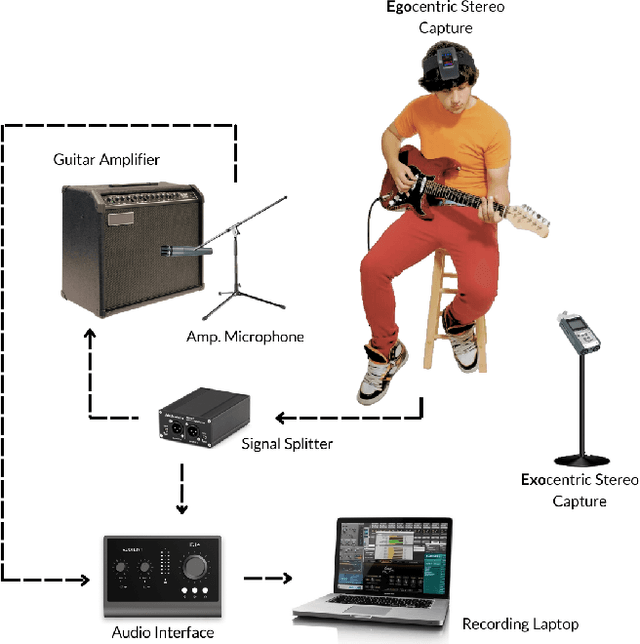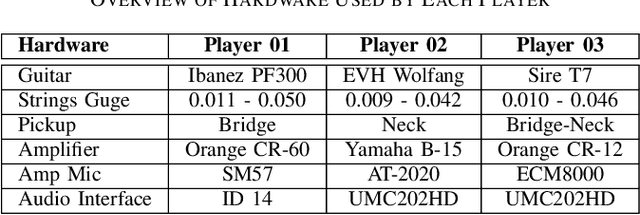Ryan M. Corey
Guitar-TECHS: An Electric Guitar Dataset Covering Techniques, Musical Excerpts, Chords and Scales Using a Diverse Array of Hardware
Jan 07, 2025



Abstract:Guitar-related machine listening research involves tasks like timbre transfer, performance generation, and automatic transcription. However, small datasets often limit model robustness due to insufficient acoustic diversity and musical content. To address these issues, we introduce Guitar-TECHS, a comprehensive dataset featuring a variety of guitar techniques, musical excerpts, chords, and scales. These elements are performed by diverse musicians across various recording settings. Guitar-TECHS incorporates recordings from two stereo microphones: an egocentric microphone positioned on the performer's head and an exocentric microphone placed in front of the performer. It also includes direct input recordings and microphoned amplifier outputs, offering a wide spectrum of audio inputs and recording qualities. All signals and MIDI labels are properly synchronized. Its multi-perspective and multi-modal content makes Guitar-TECHS a valuable resource for advancing data-driven guitar research, and to develop robust guitar listening algorithms. We provide empirical data to demonstrate the dataset's effectiveness in training robust models for Guitar Tablature Transcription.
Mechatronic Generation of Datasets for Acoustics Research
Oct 01, 2023Abstract:We address the challenge of making spatial audio datasets by proposing a shared mechanized recording space that can run custom acoustic experiments: a Mechatronic Acoustic Research System (MARS). To accommodate a wide variety of experiments, we implement an extensible architecture for wireless multi-robot coordination which enables synchronized robot motion for dynamic scenes with moving speakers and microphones. Using a virtual control interface, we can remotely design automated experiments to collect large-scale audio data. This data is shown to be similar across repeated runs, demonstrating the reliability of MARS. We discuss the potential for MARS to make audio data collection accessible for researchers without dedicated acoustic research spaces.
 Add to Chrome
Add to Chrome Add to Firefox
Add to Firefox Add to Edge
Add to Edge